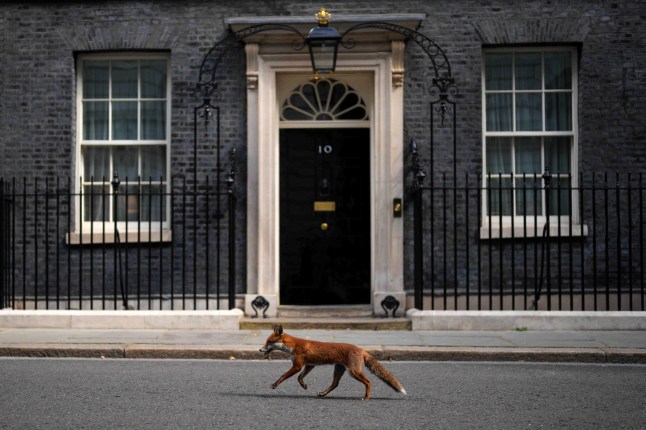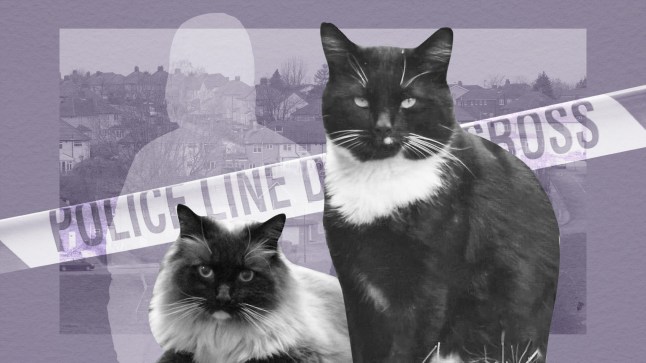
When Peter* looked outside of his window just two weeks ago, he spotted his black and white cat Tux lying at the end of the driveway in Croydon.
Straight away, he knew something was wrong.
As Tux lay lifelessly on the concrete, Peter could see that his pet had suffered some sort of terrible injury, so ran outside to help him.
Scooping the cat up in his arms, he quickly realised that this was no accident – Tux had been cut deeply from his chest to his tail. Shockingly, his tail had also been hacked off.
It was clear that whoever had done such a brutal thing, had deliberately placed Tux at the end of the driveway for his owners to find him.
A quick trip to the vets confirmed what they knew already to be true – someone had murdered Tux.
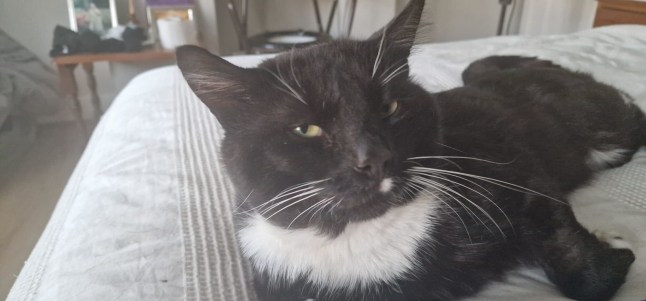
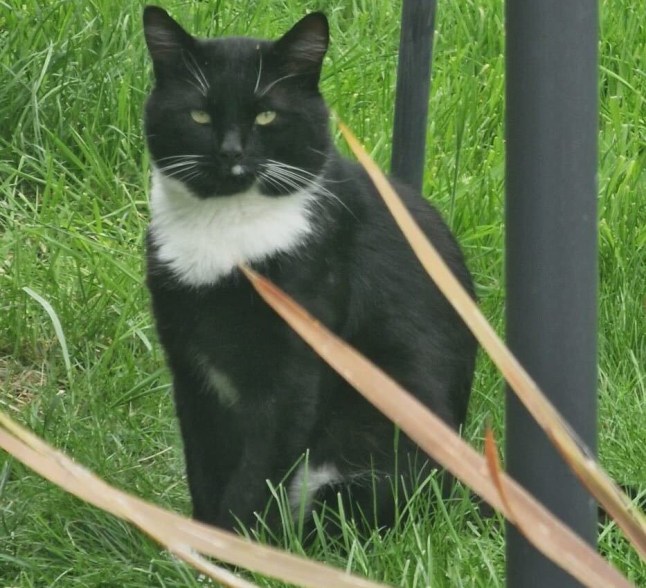
‘It still hurts to just talk about him, he was a big and active cat always wanting to roam,’ Peter tells Metro. ‘Having to tell my wife he wasn’t coming home broke my heart.’
But they are hardly the first family to have been attacked so violently in Croydon. The community has been haunted by the ‘Cat Killer’ since 2015, with 28,000 people signing a petition to ask the police to do more to stop him.
Operation TAKAHE was set up by the NCA, RSPCA and Vets across London, but no one was ever caught, and the investigation closed in 2018 – but animal mutilations have continued.
‘The cat killer isn’t back… he never left’
Latest London news
‘The Croydon Cat Killer has not come back – he never left,’ insists Boudicca Rising, one of the founders of South London Animal Investigation Network (SLAIN).
However, according to the Metropolitan Police the ‘Croydon Cat Killer’ does not exist – despite over 400 cats being found with their heads or tail removed, with objects stuffed down their throats and even chopped in half.
In Beckenham, one pet owner found just her cat’s leg at the bottom of her driveway. Another found her decapitated cat in her garden – three days later its head appeared completely preserved.
Officers insisted the gruesome deaths were down to foxes with a seemingly high lust for blood, or traffic accidents on roads where most of the limits at 20mph – something which Boudicca and her team reject.
‘Foxes don’t behead cats and leave their corpses on their owner’s garden furniture,’ she tells Metro.
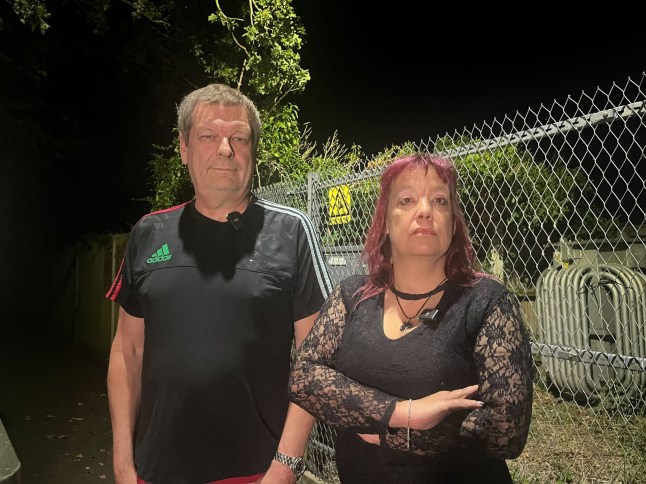
Boudicca and her team are so convinced there’s a real life cat killer on the loose that they go on regular patrols to their hunt for the ‘psychopath’ beheading London’s beloved pets.
Metro tagged along on their most recent outing, meeting Boudicca and fellow SLAIN founder Rob in a dimly lit alleyway in an undisclosed location of London, to begin the nightly watch.
Nearing 12am, Boudicca, wearing all black after coming straight from a funeral, warned us they don’t usually let patrollers out of their cars at night – but made an exception for Metro.
As we began walking around, Rob told us how he uses the observance skills he learnt during his time in Iraq and Afghanistan with the BBC.
‘But this job upsets me more,’ he said. ‘There’s just something about cats, they are a small and defenceless animal – it gets to me.’
‘The data doesn’t lie’
Since the killer first became active in 2015, SLAIN reckons more than 800 felines have fallen victim, Boudicca explains.
But after police closed the investigation, the group has continued to keep meticulous records, and the number of cases with malicious human involvement remains high.
In total, they have found 452 highly likely or confirmed cases of mutilated cats from 2019. They have also logged 24 beheaded pet rabbits and 82 foxes found beheaded, detailed or even skinned.
How many confirmed cases of murdered cats in London?
South London Animal Investigation Network has kept meticulous records of murdered cats in London.
They verify with vets the cat’s cause of death before marking the case as ‘highly likely’ or confirmed human attack.
The figures below are all cases where a vet has said they believe a human intentionally killed an animal:
2019 – 153 cases
2020 – 58 cases
2021 – 78 cases
2022 – 74 cases
2023 – 65 cases
2024 – 73 cases
2025 – 56 cases so far
In 2019 the group created patrol groups in some of the worst hit areas, and ever since those numbers have depleted dramatically, but remained the same or are rising elsewhere.
‘When we announced on social media that we were patrolling the three areas which saw the most killings – they stopped within the space of a few months,’ says Boudicca.
‘But there are other areas we have not revealed we watch over, and those numbers have either stayed consistent – or risen.’
For example, in Penge, there were 16 incidents, but there hasn’t been one killing since the group announced their patrol of the area. Meanwhile, 9 miles away in Orpington, the area suffered 50 incidents between 2015 to 2019. After the patrol announcement, there have been just 10 cases over the last six years.
Between 2015 and 2019 in Beckenham, there were 39 confirmed cases – four of which happened in the same cluster of roads. Again, the number of attacks dropped down to 10 over the last six years.
‘We are passionate about catching this guy’
All of this points to a savvy killer, monitoring social media to see where he would be safest to attack, explains Boudicca.
In a desperate bid to get one step ahead of him, the group now not only patrol areas the attacker has already targeted, but are also branching out across London to places they predict he will go next.
It’s a nerve-wracking job – for me, at least. As we stalk the quiet streets looking for anything suspicious, it’s difficult not to feel scared as the hour approaches 1am.
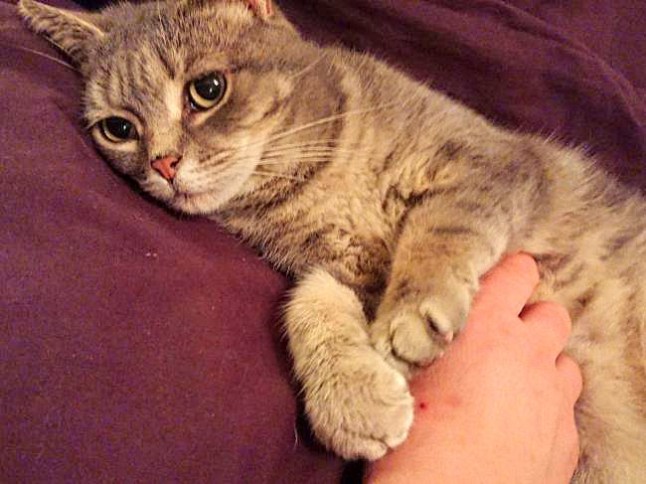
(Picture: EmmaBlehs/BNPS)

Any rustling in the leaves makes me jump, and at one point I am convinced we are about to see the feline murderer emerge from the shadows, although I soon realise that the most common sighting at this time of night is drug deals in parked cars on the side of the road.
However, this just par for the course for the 30 volunteers who dedicate some of their nights to monitor areas they believe are most at risk.
Rob who has helped patrol for seven years, explains: ‘Do we particularly want to be wandering around children’s parks late at night? No. But we don’t mind because we are passionate about catching this guy.’
Whenever there is a suspected death, the group is alerted and help remove the cat, taking it to a vet who confirms whether or not there was any human involvement.
‘We try to rule out every other possibility first before we confirm a human attack – we would never tell an owner we think your cat was cut open by a man with a knife if we weren’t 100% sure that was the truth,’ says Boudicca.
Once the cause of death has been confirmed, patrollers start leafleting the area and scouting for any CCTV that might have caught a glimpse of the person dropping mutilated cats at the bottom of owner’s driveways.
Who do they think the cat killer is?
SLAIN believes the killer is a white man aged around in his 50s. They have a suspect list around 34 names long, with members of the public calling in to offer information. But they are appealing for more volunteers to help out with their patrols to pin down who this person is.
Boudicca warns: ‘We believe this person wants to hurt humans. The cats are almost incidental to him, but their deaths are a way to hurt people without killing them instead.
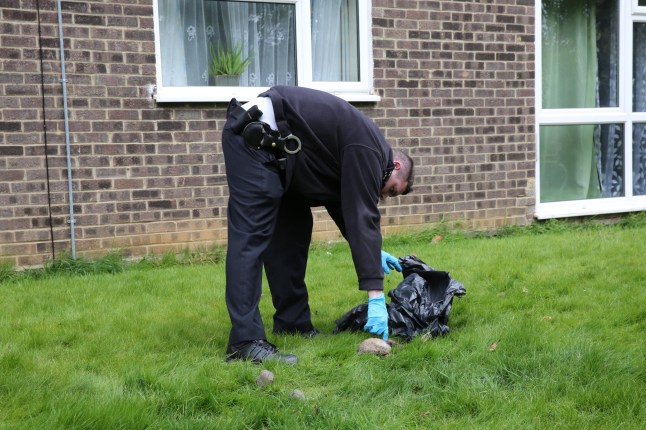
‘He’s a coward,’ she adds. ‘He avoids the areas he knows we patrol and he is taking out his sadism on defenceless animals.’
The Metropolitan Police told Metro: ‘On Saturday, 9 August police received a report of a death of an animal in Livingstone Road, Croydon.
‘Officers visited the family to understand the circumstances of the event and also extensively reviewed CCTV footage.
‘At this time officers have not identified any footage that causes concern and nothing to suggest that there was human involvement.’
Get in touch with our news team by emailing us at webnews@metro.co.uk.
For more stories like this, check our news page.

